Directed by Juzo Itami
Japan, 1985
Take three teaspoons of grated Sergio Leone, 75g of chopped Kurosawa, and 120g of shredded French New Wave. Stir them into a hot miso broth, toss in some dried shiitake mushrooms, and don’t forget the fresh ramen noodles.
What you’ll end up with is something like Tampopo, this week's film from writer and director Juzo Itami. And the recipe is no joke, this is a film that loves food, is obsessed with food. Tampopo is a social satire riffing on contemporary Japan, at times spilling over into farce, but underneath the blackest of comedy is a work that puts food on a pedestal alongside sex and death.
Itami’s comedy is free-form, a film that’s not afraid to skip genres, with nods to cinematic classics from both East and West: The Magnificent Seven, or should that be Seven Samurai? Yojimbo, Shane, À bout de souffle, and even a wink at Sylvester Stallone’s Rocky. The touchstone though is the spaghetti Western tradition of Sergio Leone but with Tampopo Itami has switched the pasta for ramen.
The eponymous heroine – Tampopo, meaning ‘dandelion’ – is a widow (Nobuko Miyamoto), struggling to hold together a rundown, deserted ramen shop after her husband’s death. Her cooking isn’t up to much though. She uses tepid water for the noodles and her chopping skills leave a lot to be desired. Into town swaggers Gorō, a cowboy-hat-wearing rōnin played by Tsutomu Yamazaki. He actually arrives in a truck, that he drives alongside his sidekick, a youthful Ken Watanabe. Following the obligatory barroom brawl in which he singlehandedly deals with some ornery locals, Gorō decides, with his partner, to take Tampopo under his wing and teach her how to craft the perfect bowl of noodles.
That’s the main narrative thread: our heroes crisscross town, visiting restaurants, learning – and stealing – deeply-held culinary secrets, and recruiting miso mystics and gurus of the gyoza to their cause. Fast forward four decades and drop the café in River North, Chicago – you’ve basically got The Bear.
Gorō: The broth is the soul of ramen.
Tampopo’s narrative is broken up by a series of gastronomic diversions, which can be hit and miss – although it may be that many cultural and culinary references simply flew over our heads. The prologue gives us a white-suited gangster and his glamorous girlfriend bursting into a cinema, planting themselves in the front seats, and unpacking a picnic hamper.
As the champagne flows he addresses us, the audience, and warns against the perils of eating during a film. A crunch is heard as a man munches on some potato crisps a few rows behind him. Cue a serious threat:
Make that noise after the film starts and I might kill you. You hear me? I also won't tolerate watch alarms beeping.
I applauded that line. We meet this couple again and again, in various episodes of what only can be described as erotophagia. One unforgettable moment involves the couple passing a raw egg yolk from mouth to mouth, back and forth, until they reach a, erm… climax, when it bursts, and the golden fluid dribbles over her chin – all to the strains of Mahler’s 5th.
Possibly the film’s funniest skit involves a troupe of salarymen arriving at a French restaurant. To the waiter’s disgust they all – clearly clueless about haute cuisine – order the same as their boss: sole, consommé, no salad, and a Heineken. That is, until the waiter comes to their most junior and hapless colleague. He peruses the menu, then asks for quenelles with a caviar sauce, escargot in fond-de-veau, and to drink? The ’81 Corlton Charlemagne.
What makes this cinematic smorgasbord work is Itami’s confidence in his absurdity. Pushing jokes to the point of stupidity, Tampopo is playful in the style of Jean-Luc Godard before he got serious. Iris fades and jump cuts: nouvelle vague becomes ‘noodle’ vague. And yet, there is that underlying serious meditation on food’s place in our lives. As they assess Tampopo’s development as a ramen chef, her noodles are not quite there yet:
They've got sincerity but they lack guts…
They lack profundity…
Another scene shows a woman preparing a meal for her family although she is clearly very unwell. So unwell in fact that she collapses and dies just as the children gather at the table for dinner. Her husband’s response:
Keep eating! It's the last meal your mother cooked! Eat while it's hot! Eat!
Meanwhile, Tampopo’s shop has been refurbished, transformed, reborn. The same can be said of her culinary skills – she is now a true ramen master. Tears of joy flow as her team announce that her bowl of noodles is, indeed, perfection. The restaurant overflows with customers. Their job done, Gorō and Gun, mount their trusty steed and drive off into the sunset.
The closing credits roll over a shot of a young woman sitting on a park bench. The camera zooms in to focus on her baby, sucking at her nipple. First taste of life, first taste of love.
There are soooo many shots of cooking, so much of the film is about people engaging with food to the point where camera has this childlike curiosity with how food sounds, how it feels, how it looks - the way the noodles move between chopsticks, the pearls of fat glistening on the surface of the broth - and, by God, am I desperate for a ramen after watching it - C
For more wacky Japanese humour spliced with horror, take a look at:
Reids’ Results (out of 100)
C - 75
T - 73
N - 62
S - 71
Thank you for reading Reids on Film. If you enjoyed our review please share with a friend and do leave a comment.
Coming next… A Real Pain(2024)

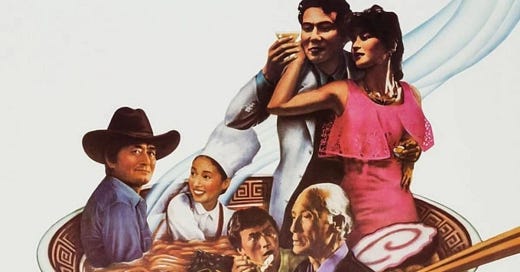



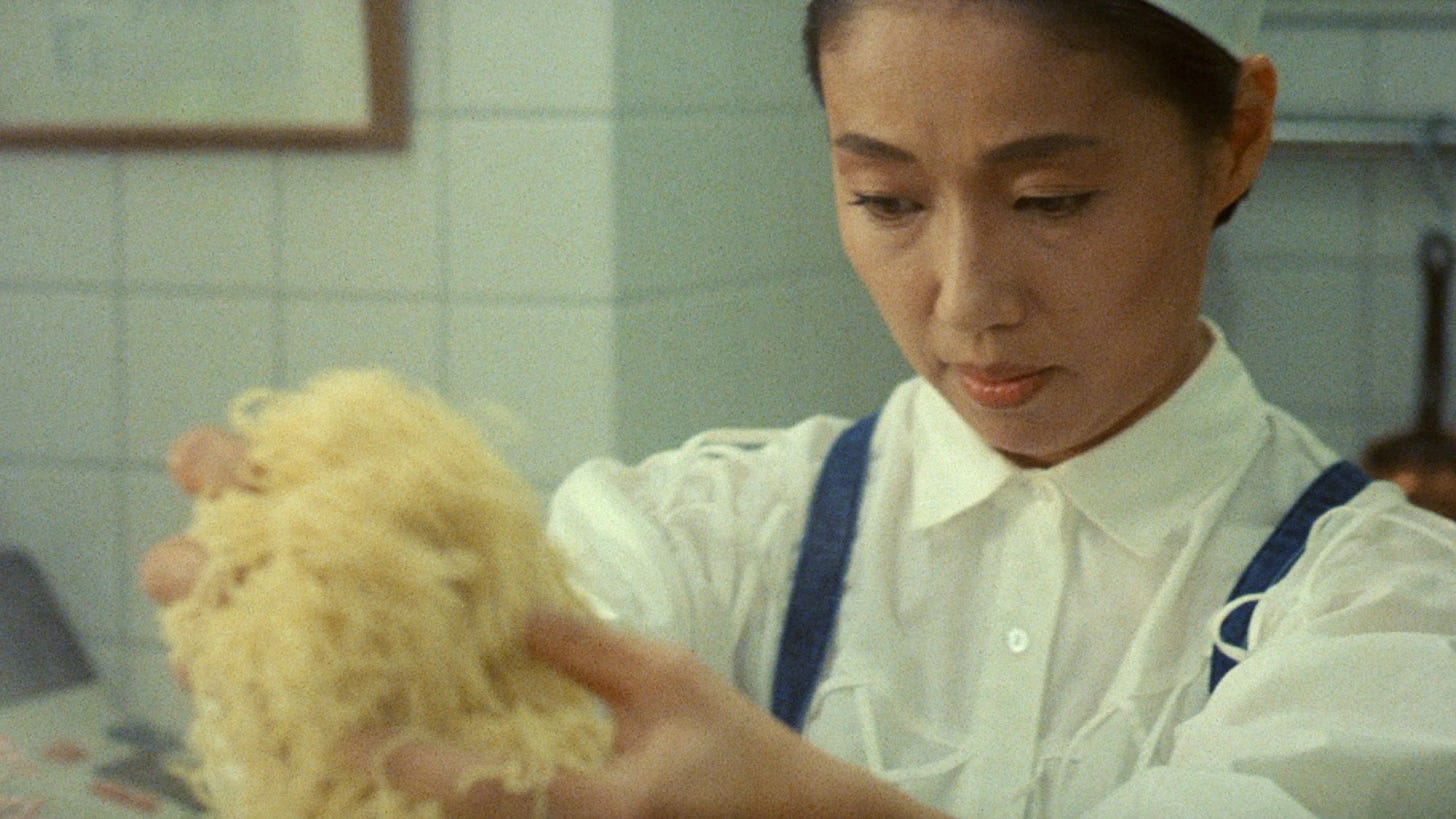
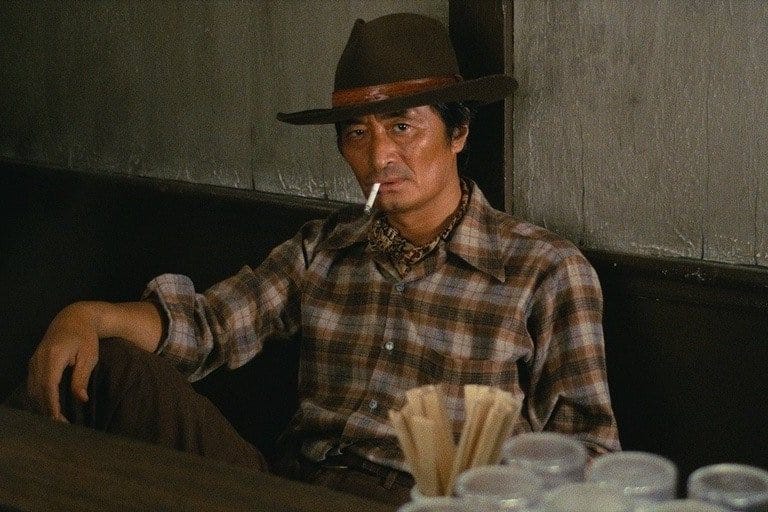
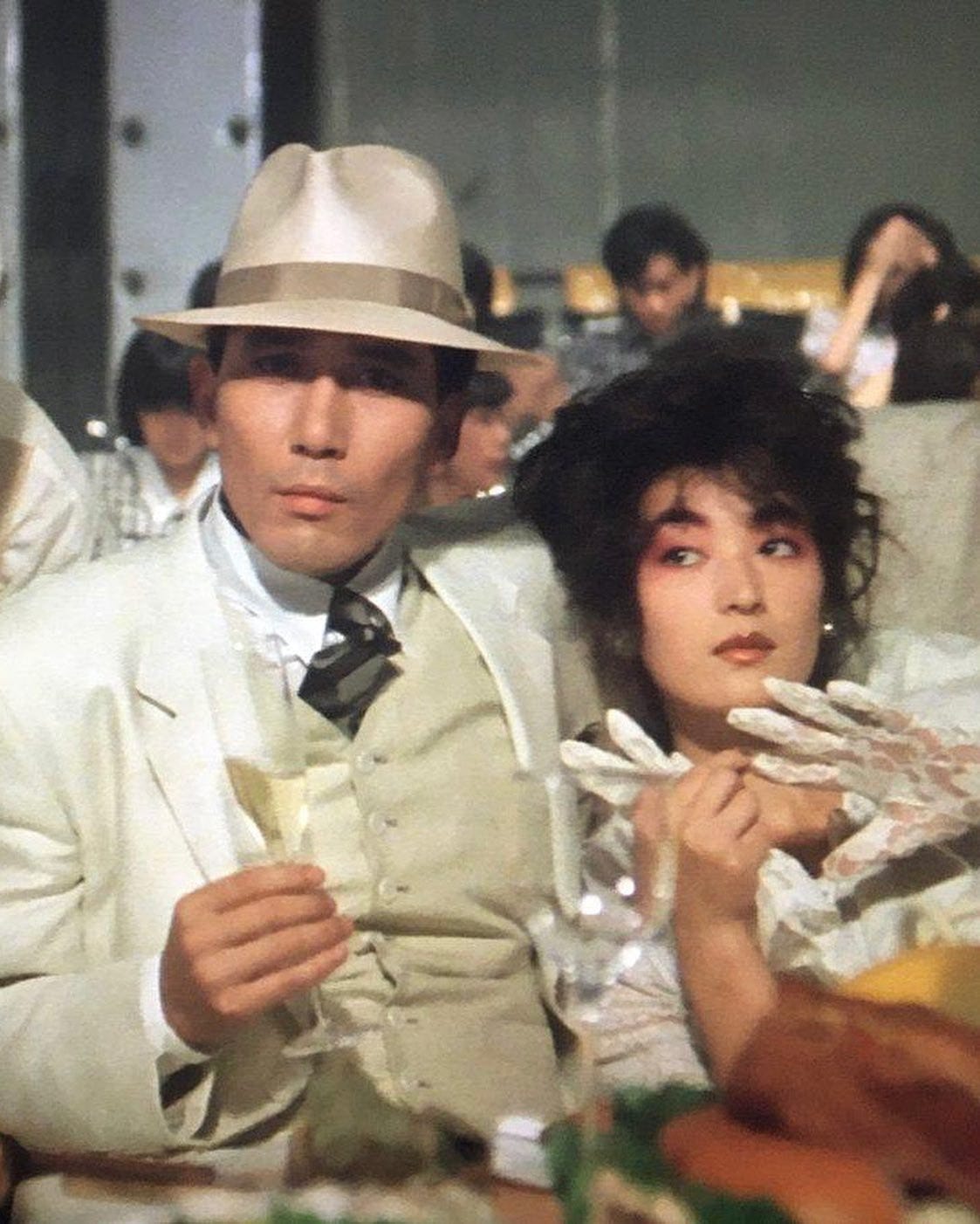
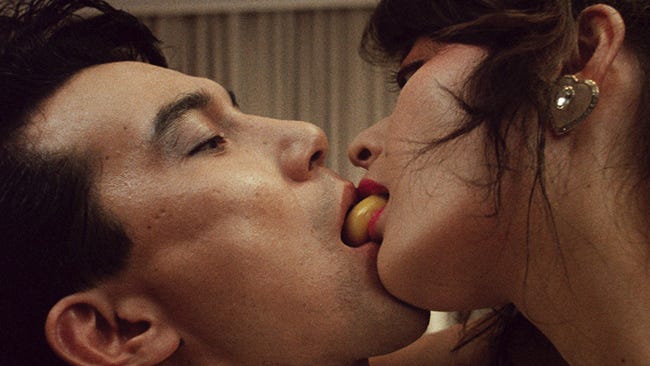
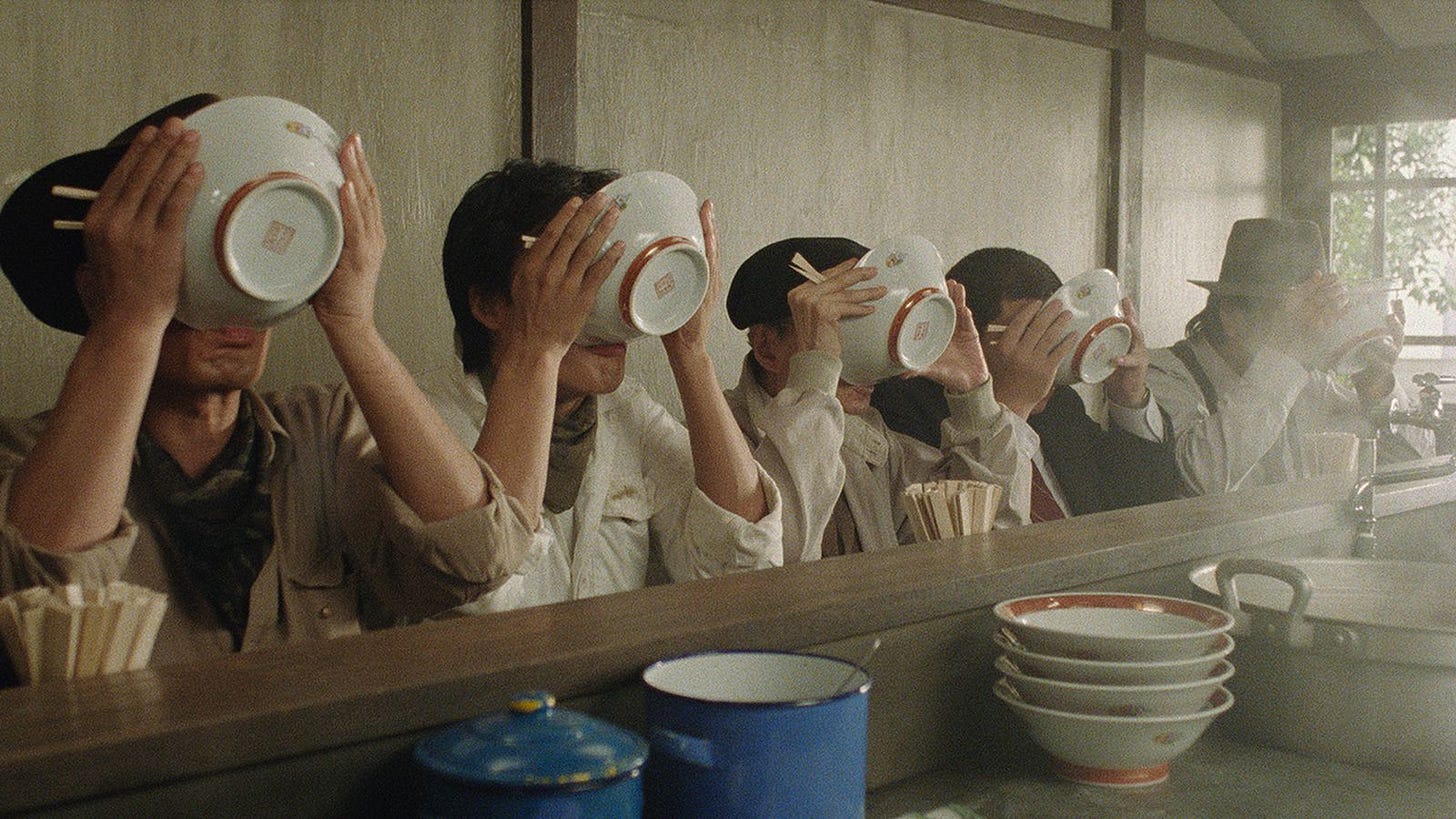

Great review. It is decades since I watched it, and I remember loving it. Although it put me off eggs for a while.